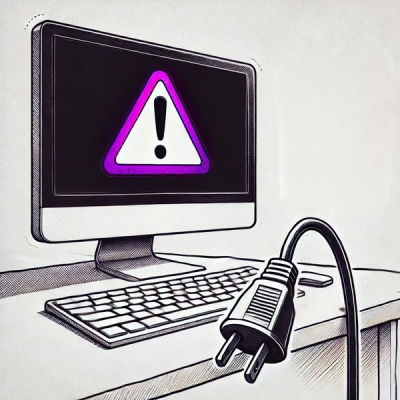
Security News
Node.js Homepage Adds Paid Support Link, Prompting Contributor Pushback
A new Node.js homepage button linking to paid support for EOL versions has sparked a heated discussion among contributors and the wider community.
ewents-scan
Advanced tools
This guide provides an example of how to use the `RTCScan` class to manage connections and handle data during a scan session. Below, you'll find installation instructions, initialization options, and method explanations.
This guide provides an example of how to use the RTCScan class to manage connections and handle data during a scan session. Below, you'll find installation instructions, initialization options, and method explanations.
Demo: https://scan.ewents.io/ Video Demo: https://youtu.be/tXeCPb_CR0A
First, make sure to install the ewents-scan package:
npm install ewents-scan
The RTCScan class provides several options and methods to retrieve connection details, monitor connection status, and handle received data.
const rtcscan = new RTCScan('66760d2b14813c0e8b53b4ff', {
maxFeedback: 10, // Max number of feedback allowed
throttleInterval: 2000, // Time between each scan event (in ms)
feedbackDuration: 10000, // Duration of feedback in milliseconds
isAutoReconnect: true, // Automatically reconnect if disconnected
}, {
allowShortUrl: false, // If true, allows generating a short URL with TTL
isLog: true, // Enables logging for debugging purposes
shortUrlTTL: 300 // Time-to-live for the short URL in seconds
});
maxFeedback: Maximum number of feedback events allowed.throttleInterval: Minimum interval (in milliseconds) between each scan event.feedbackDuration: Duration for which feedback is active.isAutoReconnect: Automatically reconnect if the connection is lost.The advanced configuration object includes:
allowShortUrl: Allows generating a short URL with a specified TTL (in seconds) for temporary connections.isLog: Enables logging for debugging and monitoring.shortUrlTTL: TTL (in seconds) for the short URL, after which it expires.const { qrImage, url } = await rtcscan.getConnectionDetail(300);
Retrieves the QR code URL (qrImage) and the connection URL (url). Optionally, you can pass qrPxSize to adjust the QR code size (default is 300 pixels).
rtcscan.onDataReceived((value) => {
return {
type: 'success' | 'error', // Indicates the type of response
message: 'This is a message', // The message to be sent
};
});
Listens for incoming data. You can return a type ('success' or 'error') and a message, though this is optional.
rtcscan.onIsConnecting(() => setIsLoading(true));
rtcscan.onIsConnected(() => setIsConnected(true));
onIsConnecting: Triggered when the session is connecting.onIsConnected: Triggered when the connection is successfully established.rtcscan.reConnect();
Attempts to manually re-establish the connection if it is lost.
const sessionId = rtcscan.getSession();
rtcscan.getSession((id) => console.log(id)); // Optionally pass a callback
Returns the session ID, with an optional callback for handling it when available.
rtcscan.startConnectionWithUrl('https://scan.ewents.io/connection-url');
Initiates the connection using a specified URL (short or long), allowing flexibility in the URL format.
This overview covers the key methods and options of the RTCScan class, providing control over connection handling, received data, and session management.
FAQs
This guide provides an example of how to use the `RTCScan` class to manage connections and handle data during a scan session. Below, you'll find installation instructions, initialization options, and method explanations.
The npm package ewents-scan receives a total of 5 weekly downloads. As such, ewents-scan popularity was classified as not popular.
We found that ewents-scan demonstrated a healthy version release cadence and project activity because the last version was released less than a year ago. It has 0 open source maintainers collaborating on the project.
Did you know?

Socket for GitHub automatically highlights issues in each pull request and monitors the health of all your open source dependencies. Discover the contents of your packages and block harmful activity before you install or update your dependencies.

Security News
A new Node.js homepage button linking to paid support for EOL versions has sparked a heated discussion among contributors and the wider community.

Research
North Korean threat actors linked to the Contagious Interview campaign return with 35 new malicious npm packages using a stealthy multi-stage malware loader.

Research
Security News
The Socket Research Team investigates a malicious Python typosquat of a popular password library that forces Windows shutdowns when input is incorrect.